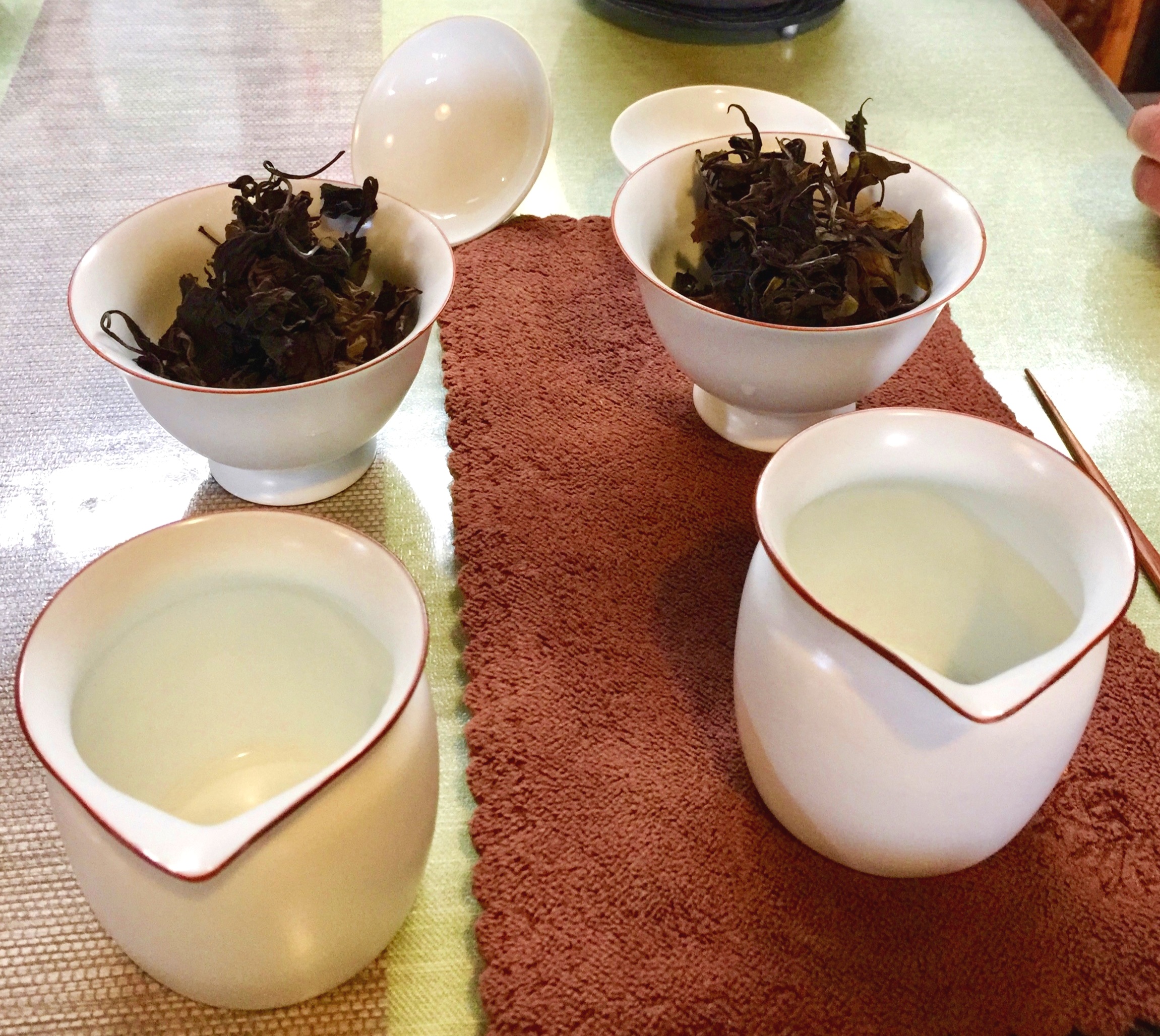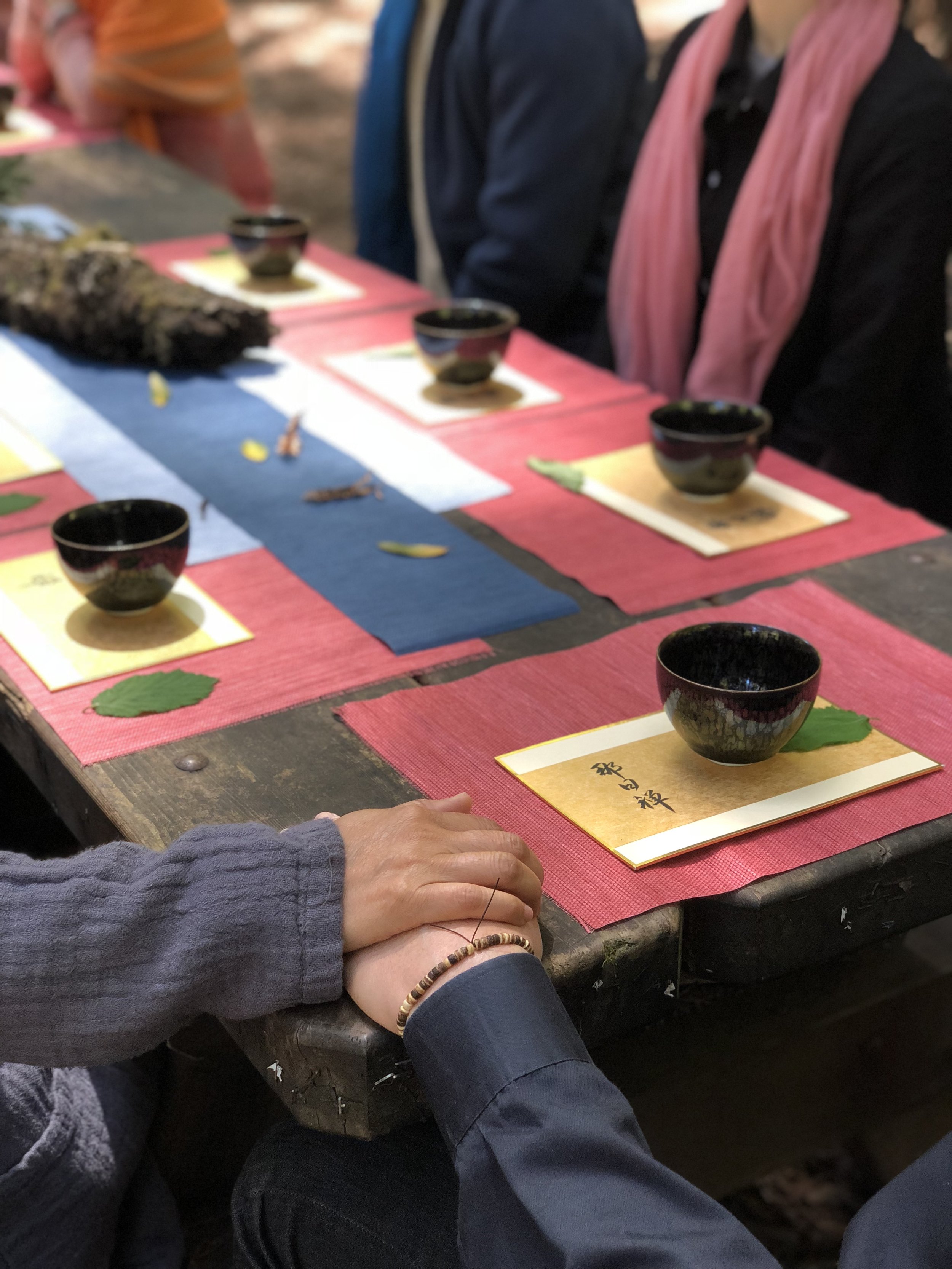Learnings from Xilai: Tea
Life as a cup of tea 人生如茶
On my second day in Xilai, I experienced an intimate tea tasting with Mudeng, the 师父 Sifu (Teacher-Monk) of the Chan (Zen) community. She invited David and I, the only Americans, to sit with her to journey through the unfolding of two white teas.
White teas have the longest history in China - people started drinking it 5,000 years ago (Oolong started 300 years ago). People also always boiled teas - steeping started 500 years ago.
We sat in silence and drank cup after cup for the first hour and a half, iterating on different steep times and cooking methods.The two white teas were picked from the same plant: one of newer leaves, one of older leaves. She had the older tea prepared a third way - boiled - for 15 minutes.
The first tea was heavy in floral aromas and sweetness. The second tea was subtle and it wasn’t until the 6th pour, that its full flavors opened up - it felt like I was rolling around in the dirt - wet, dark, and minerally. Finally we had the boiled tea - oh my - it was dark red and tasted like sweet date soup, unlike any white tea I’ve ever had.
“The key to tasting tea is to never judge it.
Some teas open in the beginning and fade quickly, some teas take [...] and last longer, but if at every cup you are tasting for whether it is good or bad, that judgement influences your journey before and after.
Instead, just be with it.”
“The key to tasting tea,” she said, “is to never judge it. Some teas open in the beginning and fade quickly, some teas take 6 cups to open and last longer, but if at every cup you are tasting for whether it is good or bad, that judgement influences your journey before and after. Instead, just be with it.
Look at these two teas, they come from exactly the same plant, we just picked different parts of it.
So with what are you judging it?
The way the leaves are picked, the water used, the ceramic used, the tea pourer, how they hold the lid to steam the tea, the minutes and seconds they change the steep time by — that all affects the taste of the tea. And the most important besides all of that is You, who is tasting the tea — your own capacity to sense vibrational energies, subtleties in flavor, and allowance of the tea to take you on a journey from where it came — this is different for each person.
So tell me, what are you actually judging? What is reality?
How could you judge the tea, when so many things influence the experience?
Even if you judge the tea, what about bringing curiosity to the origination - how the tea was processed, grown, and the soil used to make it so?
The only thing you can do is be with it and enjoy it. Love and 洞差它 (deeply investigate-inquire).
And because each tea changes so much over time, you must be with it until the end.
When there’s no more flavor and we are back to water, then we discuss and share our reflections."
During her share, I remember feeling self-conscious about whether or how I judged the cups as I drank it. I thought of myself and Nigel as these cups of tea, and was sorry for all the moments I judged him and myself, and the moments in which I saw anyone including myself as fixed and thus needed fixing. And that how I drink this tea is the same way in which I drink all my relationships (and emotions as I've learned with Joe).
How can I be with myself, in the cup I am at, and simply enjoy it? To not judge, but to be with it until the end. Until we are water again. And even then….
“Thus, you should learn how to drink tea.” she said.
We all laughed and bowed to the tea, the pourer, her and ourselves.


